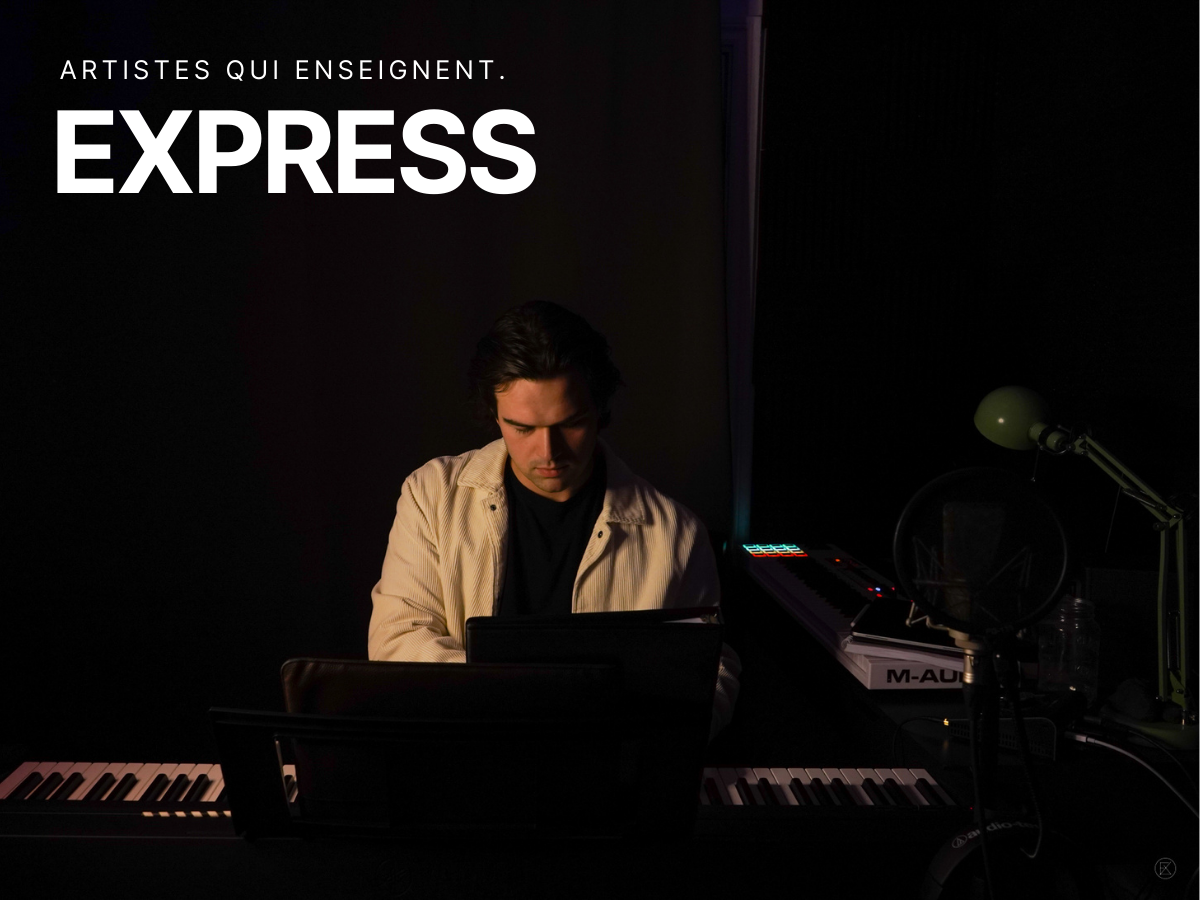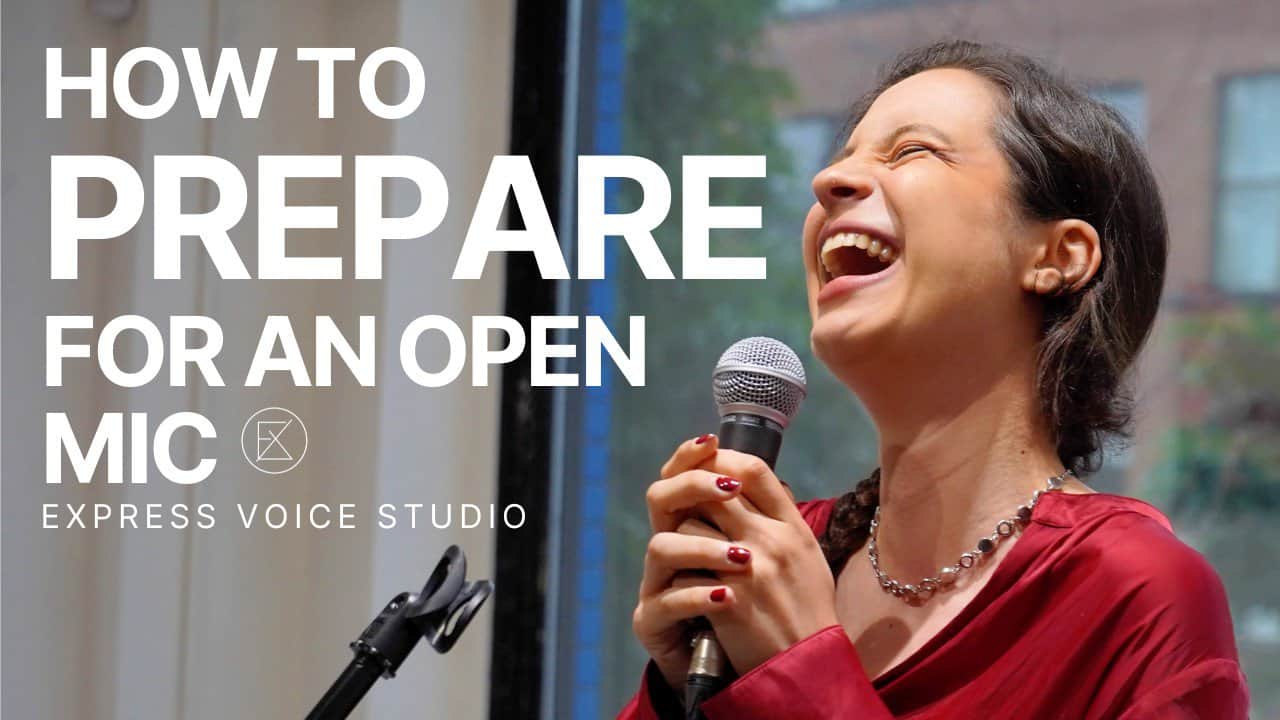Table of Contents
Preparing for an open mic night will guarantee you rock the stage and get some free drinks from adoring fans. While some open mic nights operate more like a karaoke bar and take place at venues where “bad singers” really turn up the place, generally an open mic is about putting your performance skills on display.
Open mics can be used to test new material, for experienced improvisational musicians to use it as a jam session, and for local talent to display their original works or nuanced acoustic covers. Whether you are preparing for open mic events for the first time or are a seasoned performer, it is a wise decision to prepare for the event.
This article will lay down some tips on how to prepare, how to perform with gusto, and make the night one of positive exposure for your talents. Want some extra help? Take a look at the professional performers in Toronto who offer coaching in vocal arts and performance!

1. Consider the Venue of the Open Mic Night
Don’t go in blind people.
Before you even think about preparing your performance, take the time to research the venue where the open mic night will be held. Toronto has diverse range of venues, each with its unique atmosphere and audience.
You might sing at a cozy coffee shop, a lively bar, or a dedicated performance space, and understanding the setting will help you tailor your act to the crowd and environment. It feels a little weird to be blasting your belting voice if there are people sitting at your feet drinking a coffee, you know what we mean?
Check the venue’s website or social media pages for information on the size of the stage, available equipment, and the general vibe of the place. This knowledge will influence your song selection, performance style, and overall approach. You will also be able to see if they accept solo artists only or have the setup for a full band.
2. Understand Your Artistic Identity
For the aspiring musicians out there, before selecting a song for your open mic performance, take a moment to reflect on your artistic identity. What genre resonates with you? What emotions or messages do you want to convey through your music? Understanding your own musical style and preferences will guide you in choosing a song that authentically represents you as an artist.
Go ahead and scope through your portfolio of original songs and see what fits. If you like to do covers of songs, give yourself time to sit with the song and write into it your own voice.
3. Selecting the Right Song
Choosing the right song is a critical step in preparing for an open mic night.
Consider the following factors:
a. Relevance to the Audience:
Tailor your song choice to the demographic and preferences of the audience. If you’re performing at a venue known for its indie folk crowd, selecting a suitable song from that genre will get a better reaction from the audience and give you more audience enthusiasm throughout your performance.
b. Showcasing Your Strengths:
Pick a song that showcases your vocal range, musical skills, and overall strengths as a performer. This is your opportunity to shine, so choose a piece that allows you to demonstrate your best qualities.
c. Emotional Connection:
Opt for a song that you connect with on a personal or emotional level. This connection will translate into a more authentic and compelling performance that resonates with the audience.
3. Arrangement and Interpretation
For our singers who like to cover songs, once you’ve selected your song, consider how you can make it your own. Experiment with different arrangements, tempos, and dynamics to add a unique twist to the performance. This can involve adjusting the song’s structure, incorporating instrumental breaks, or even rearranging the chords. Your goal is to present a version of the song that highlights your individuality as an artist.
4. Rehearsal Techniques
Effective rehearsal is the key to a polished performance. Don’t skip out on doing the background work! You may think you are ready, but maybe it’s been a while since you sang that song- the fingers on the guitar get rusty, your body needs a reminder of how to hit those high notes. Take time to work it back into your set.
a. Isolate Challenging Sections:
Identify and isolate challenging sections of the song. Focus your rehearsal efforts on these areas and don’t fall into the “fun” practice where you are just running through the song over and over again. There is definitely a need to run the whole song and then the whole set, but practice should entail focused and intentional work of difficult areas.
b. Record and Evaluate:
Record your rehearsals and listen critically. This will help you identify areas for improvement, assess your vocal and instrumental delivery, and refine your interpretation of the song. If you like the final result, someone else will too!
c. Live Rehearsals:
Whenever possible, rehearse in front of a small audience, such as friends or family. This simulates the open mic environment and helps you become more comfortable performing in front of others. Don’t be afraid to go to easy going jam sessions or meetup with other musician friends and ask them to run the song with you. You might even walk away with a totally new version of the song based on what they contributed to it!
d. Visualize the Performance:
Close your eyes and visualize yourself on stage. Imagine the venue, the audience, and the overall atmosphere. This mental rehearsal can enhance your confidence and preparedness.
5. Technical Considerations
If you’ll be using any technical equipment, such as a microphone or amplifier, ensure that you are familiar with its operation. Practice with the same equipment you’ll be using during the open mic night, and be prepared to troubleshoot any technical issues that may arise.
You could also go by the venue in advance and ask to see the equipment they use!

6. Create a Set List
Once you’ve perfected your chosen song, consider creating a set list that flows well and engages the audience. Think about the pacing and dynamics of your performance, and strategically place your selected song within the set list to make a lasting impact.
7. Embrace Nervous Energy
Feeling nervous before a performance is natural, and harnessing that energy can enhance your stage presence. Embrace the excitement and use it to fuel your passion for the music. Take deep breaths, focus on the music, and remember that the audience is there to support and enjoy your performance.
8. Revisit and Refine
Even after thorough preparation, the process doesn’t end. Periodically revisit and refine your performance. Consider incorporating feedback from rehearsals, live performances, and audience reactions to continually improve and evolve as an artist.
9. Respect the Time Limit
Most open mic nights in Toronto allocate a specific amount of time to each performer. Respect the time limit, as exceeding it not only disrupts the schedule but may also lead to a less enthusiastic response from the audience. Practice pacing your performance during rehearsals to ensure you stay within the allotted time frame.
10. Be Open to Feedback
After your performance, be open to feedback from both the audience and fellow performers. Constructive criticism can provide valuable insights into areas for improvement and help you refine your act for future performances. Don’t take feedback personally; instead, use it as a tool for growth and development as a performer.
Conclusion
Preparing your song for an open mic night in Toronto is a multifaceted process that involves self-reflection, careful song selection, creative interpretation, and diligent rehearsal. By understanding your artistic identity, selecting a song that resonates with both you and the audience, and fine-tuning the details of your performance, you’ll be well on your way to delivering a memorable and captivating experience on the stage. Embrace the journey, learn from each performance, and let your passion for music shine through every note.
Jordanne Erichsen is the founder of Express Voice Studio, Vocal Coach, and is the author of this article. For more details about Singing Lessons check out Express Voice Studio!







